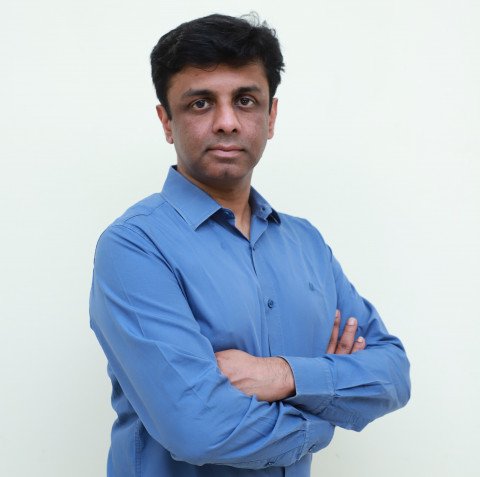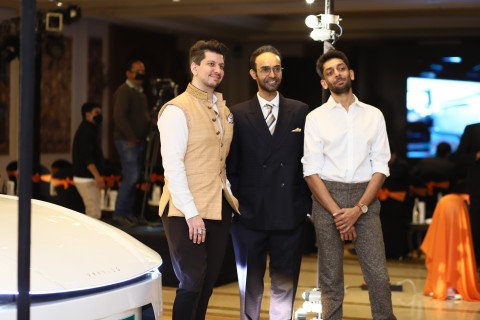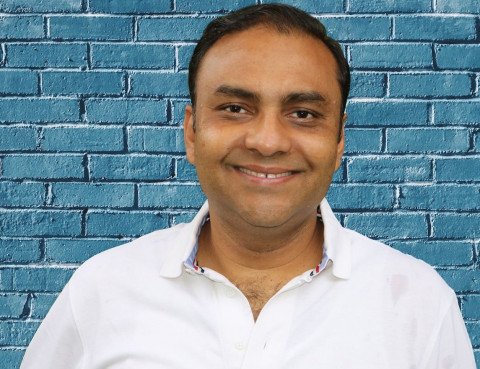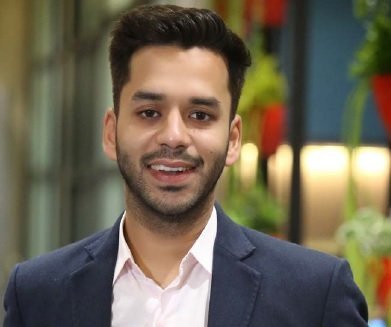Kickstarting startups: From seed-stage to pre-series
The process of bringing a novel product to market is fraught with several risks and challenges, but TiE India Angels' platform is helping young entrepreneurs bring breakthrough ideas to the market.
Every year, August 21 is celebrated as World Entrepreneurs Day. Entrepreneurs bring breakthrough ideas to the market, and in doing so, solve critical problems through their unique solutions.
These innovators through their enterprising startups not only create value for customers but also fuel the economic growth of the country. Especially, in a developing country like India, if the startup ecosystem is fostered it can stimulate the growth of businesses in key sectors to meet the goal of national importance including sustainable development goals.
The latest reports suggest that in 2021 alone, Indian startups have raised upward of $20 billion in funding, and some have achieved unicorn status. While these trends reflect the tremendous potential of the youth in the country, unlocking the true potential of young entrepreneurs and leveraging their skills and ability through the right mentorship, funding, and market access will remain crucial for developing a thriving startup ecosystem in India.
In the following interview, Mahavir Pratap Sharma, Chair - TiE India Angels and Chairman and co-founder - RAIN (Rajasthan Angel Innovators Network) spoke about India's booming startup ecosystem, the role of accelerators is promoting innovation and entrepreneurship
The Indus Entrepreneurs (TiE), has been at the forefront of promoting entrepreneurship and innovations across industries, through all stages of the entrepreneurial lifecycle. What are some of the innovations TiE has supported in the energy storage and emerging technology space?
Wherever TiE has existed globally, energy, sustainability, and energy storage have been critical. Our Silicon Valley chapter, Boston chapter, and all the venture capitalists (VC) there are very much focused on these sectors. The VCs in America have done a much better job than what we have done in India, nonetheless, we have a full vertical - the TiE Sustainability Special Interest Group - which has over 150 odd members who invested in companies, startups working in the sustainability and energy storage sector.
Individually, too, all of us have invested in small, early-stage, or idea-stage companies focused on electric two-wheelers, long-lasting batteries among others. Several charter members across the world have invested in power generation, batteries, innovative products, and services, whether in India or the U.S.
Overall, we are gung-ho about this vertical, and TiE is actively looking to participate as angels and VCs in this sector. I would like to add that in Europe, North America, and South-East Asia energy conservation, energy storage, and recycling are going to be a prime focus.
Can you elaborate on TiE chapters across the globe and in India?
TiE has 61 chapters across the globe, 26 in India, 24 in the U.S., and the rest are in Europe, South-East Asia, and Australia.
In India, we are spread across major Indian cities from Delhi, Calcutta, Dehradun, Jaipur, Lucknow, Surat, to Mumbai, Nagpur, Bengaluru, Hyderabad, Cochin, Telangana, and Guwahati in the East. We operate various verticals across the ecosystem. While most of us are tech investors, we have a charter member base of 3000 individuals across the globe, 13,000 association members growing at a rapid phase -- we're opening new chapters, aligning with new events, and exploring new avenues for investments.
In October, we are doing the TiE Sustainability Summit (TSS) in partnership with Adani, where the government of Costa Rica and the government of Israel are partner countries, and we are going to give grants to companies present at the summit.
The core focus of the Summit is not only for people to come together and share ideas but to invest in startups. The plan is if they are at the early-stage or idea-stage then give them grants; if they are done with the PoC (proof of concept) stage then give them angel investment, or if they are beyond, and want to scale up, then give them series A funding.
So, energy and sustainability are the very core of the TSS, and we will be able to scale the Summit to new heights with Adani being the lead sponsor and Telangana Government being partners. Solar, battery, storage, water, agriculture are all very important themes of the summit.
How can startups become a part of TiE? Please share more about the process and what entrepreneurs can expect?
You have to become a member of a chapter, and you will find quite a few mentors in your geography in the sector who can mentor you, give you an amount for investment or grant if you are at an ideal stage to build a prototype, and work on idea further. Then we have TiE India Angels Program that looks at startups post POC, those who have some Intellectual Property (IP) and are investible and we invest more than half a million in those startups that qualify. We have over 250 TiE angels who are registered at the network across the globe would be investing.
We not only provide investment but market access, outreach, and more – say if a product must go to the U.S., then the chapter there will provide support. Similarly, if a product must go to Kenya or South Africa, the regional chapters there will offer support.
All-in-all it is a very robust platform from the idea- or seed-stage to pre-series round A. TiE has a network of people, funds, Charter members who are keenly observing what we are doing at TiE and are wanting to take it forward.
How many entrepreneurs/incubators products supported by TiE have been commercialized?
There is not an incubator that is in a college in any city across India that has not partnered with the TiE chapter locally or regionally. In Rajasthan, we have 10 colleges from BITS Pilani and other regional colleges in addition to IIT Jodhpur. Similarly, in Delhi, Hyderabad, and Mumbai -- you name an incubator and they probably have partnered with TiE.
For any incubator or accelerator program, the software, the networking, the handholding, the knowledge, and the finding comes from TiE, this is because our focus has always been to work at the bottom of the pyramid.
We understand that once startups start generating revenue and scaling year-over-year, there will be many VCs, funders looking to invest as it is safer for investment at that stage, but at an early stage where the failure rate is very high, handholding is critical, it takes organizations like TiE, and we will continue to flourish and nourish that space.
What are some trends you observe when it comes to the latest innovations taking place in the green energy and clean transportation sector?
What we observe is that young entrepreneurs are coming up with brilliant ideas using the best of technology in Artificial Intelligence, Machine Learning and incorporating that with impact – social, environmental, or whatever the scale of the matter is.
I've realized that India has a great potential not only to serve as backend, creation of technology and provider services but also to reach out to masses, wider markets and make things that will make life easier. Impact and sustainability are two prime sectors; the trend is towards that.
Blockchain, fin-tech that's another area where we are also seeing innovation.
Earlier this year TiE India Angels had signed an MoU with IESA, what can we expect from that collaboration?
This is a multi-benefit partnership for both TiE and IESA.
We as angels get hounded by startups in hundreds daily and we are no expert in each domain or sector, so by partnering with IESA we get that sector or domain-specific partner. This will enable a swifter filter process so what comes out of pitching, the screening will have some semblance with technology so that technical validation will happen through this partnership.
Secondly, TiEs philosophy is not to work in isolation but in partnership, so we are looking at not only collaboration on this front but also to co-invest, to reach out to a larger audience - generic business people who can invest in the future of the ecosystem.
For IESA, the partnership brings 250 angels from across the globe willing to look at the startups, wanting to evaluate their business and invest in it – this has a multiplier effect for the startups, and the impact will be enormous as we can give access to markets, funds, and mentorship.
Therefore, this is a win-win solution, as TiE will get the right kind of startups curated and filtered to us, and IESA will get access to all the angels who want to invest in these startups. The main idea behind this partnership is to invest in the future of India in energy, energy storage, and emerging technology.
Through the TiE India Angels program, we not only want to help young entrepreneurs, a good team of people who have the know-how and the bandwidth to create something new but also spark the entrepreneurial bug so they can save energy, create jobs, and improve the ecosystem.
We need to create a lot of startups, a lot more angel investors, and get the idea, technology, and the teams' goings; so products and services of global recognition are created in our country.
TiE India Angels will be one of the actors playing a key role in this process. And, with the full backing of the government of India, the Department of Industrial Policy & Promotion (DPIT), we should be able to change the investment ecosystem in the country faster than what we have seen in the past 8-10 years.



















